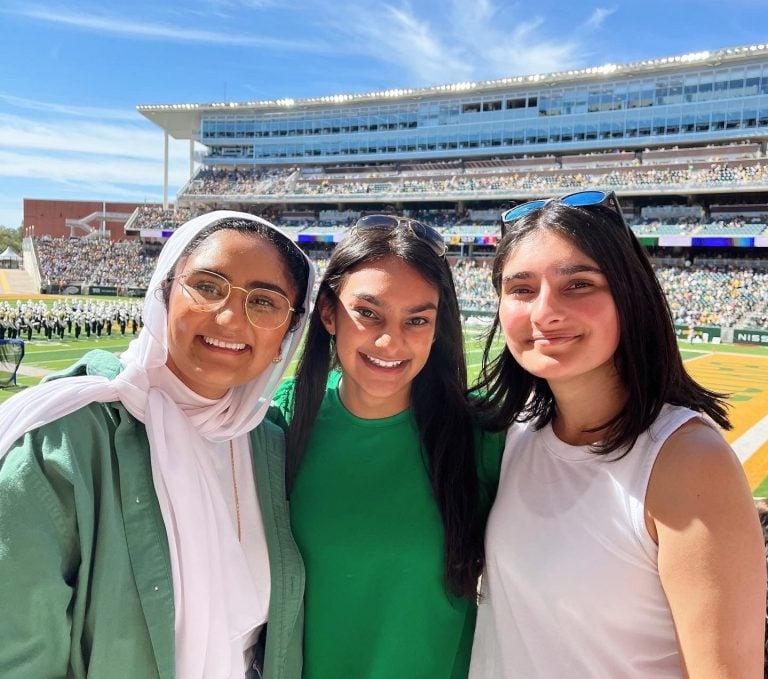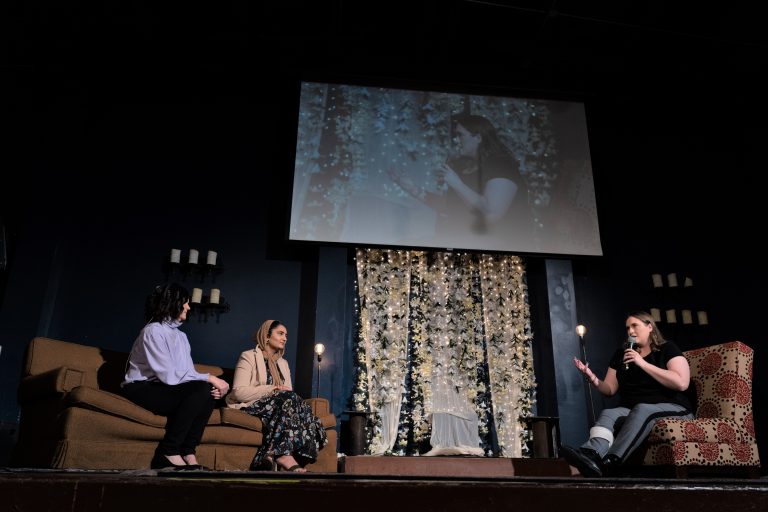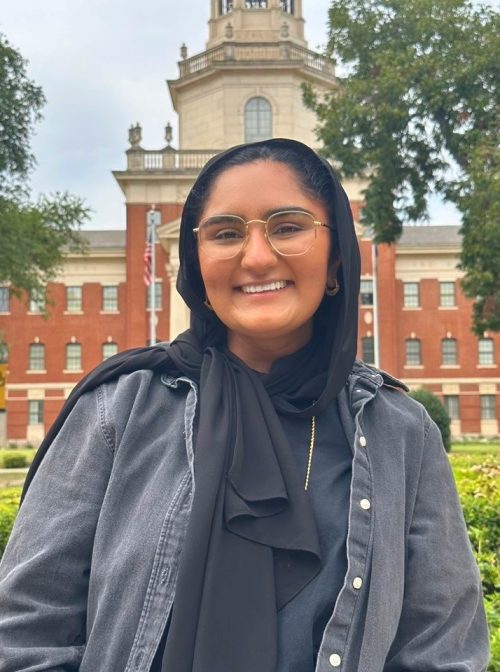During my first year at Baylor University, I almost transferred out. I was one of only a handful of Muslim students, one of an even smaller number of hijabi students on campus, away from home for the first time, and surviving in the middle of a global pandemic.
During that first year I had the privilege of meeting Sharyl West Loeung. Sharyl worked in Multicultural Affairs, and she was my freshman seminar professor, and she convinced me to stay. She mentored me, inspired me, and motivated me to step outside of my comfort zone. I started and ended my journey at Baylor with Sharyl.
As I write this, in 42 days I am going to graduate from Baylor with a degree in anthropology with a double minor in Civic Interfaith Studies and International Studies. Before I graduate, I had the opportunity to speak at the Belief and Belonging Festival organized by Sharyl. Sharyl allowed me to share how my journey at Baylor has shaped me and my faith.

Part of being a minority at a predominately white institution — especially one like Baylor University of Waco, Texas, with its Christian mission and conservative values — is being painfully aware that you have to work twice as hard as your white counterparts for the same opportunities. During my first summer in college, the pandemic was in full swing, my first “grown-up” internship was canceled and all I could think about was how I would never make it to law school because my classmates had connections that allowed them to continue their internships in a COVID-friendly way. About a month into my summer of sulking, my mom told me about an organization named Minaret Foundation that was looking for remote government relations interns. I applied, and shortly after I joined Minaret Foundation as part of their inaugural cohort of interns. After I began my work with the organization, I learned what it meant to be passionate. I was beyond passionate about the work they did. After my summer-long internship, I was called into a one-on-one meeting with the Executive Director. I was nervous that I made a mistake and waited for my termination, but instead I was offered an opportunity that has changed my life. After my summer-long internship I was invited back to the organization as a Senior Government Relations Intern to train to take on the role of Government Relations Coordinator.
Minaret Foundation did not have a policy department, platform, or legislative agenda when I first joined the organization. So, together, we developed a policy that was introduced in Texas shortly after I took on the role of Government Relations Coordinator. That policy was “No Kids in Cuffs.” No Kids in Cuffs sought to limit the use of restraints on children under the age of 10. Over 70,000 students are restrained annually — 45,000 in Texas — 91% of which are students with disabilities. This policy brought together both the left and the right to protect our Texan children; it brough together student resource officers, educators, disability rights advocates, juvenile justice experts, conservative organizations and progressive social justice-oriented organizations. This effort almost passed on its first try. It made its way through the Texas House with no objections and was accepted to the Senate during the last week of session, where it ultimately died. While I was devasted, there was victory in the sadness. Within all our policy “wins” there was something greater. Minaret Foundation is a faith-led non-profit that roots itself in Islam, but we work within the multi-faith community, and we were the first Muslim organization to work in the space of domestic child-welfare policy. This was an historic achievement, for the first time, our community was seen as the experts in a field of policy that was not directly linked to our oppression.

As a visibly Muslim hijabi woman, most areas of my life are related to faith, which I am eternally grateful for. The choice to wear the hijab came with the choice of being a representative of my faith and taking opportunities to show the world the same grace, mercy, and love I have experienced from the Lord, but I often wish to be thought of as more than just my identity as a Muslim woman. To be clear, I love talking about my religion, but I look to a world where Muslim professional are thought of as experts in their fields and not simply experts on religious matters. My work in policy has allowed me to be viewed as someone who knows more. To be able to walk into legislative offices, wearing the hijab, representing Islam, and speaking about child welfare, disability rights, food insecurity, and religious liberty, has helped bring our state and country closer together. Now, when people think of Muslims, they no longer have the image of terrorism, or the fear of violence, they now think of their friends at Minaret Foundation.
As a Muslim woman I want my faith to be part of the conversation, but I also want my friends and neighbors to understand that my faith colors all parts of my life. As we move forward together, I want us to realize that in order to be a good ally, we need to recognize that our friends of faith want to be thought of with depth and not simply as one part of their identity. I truly believe that by being curious and inquisitive with the intention of letting people share their story with you can help bridge the division we see in our society.
Baylor University student Noor Saleh was a featured speaker at the Belief & Belonging Festival in Waco, Texas, on November 5, 2022.




